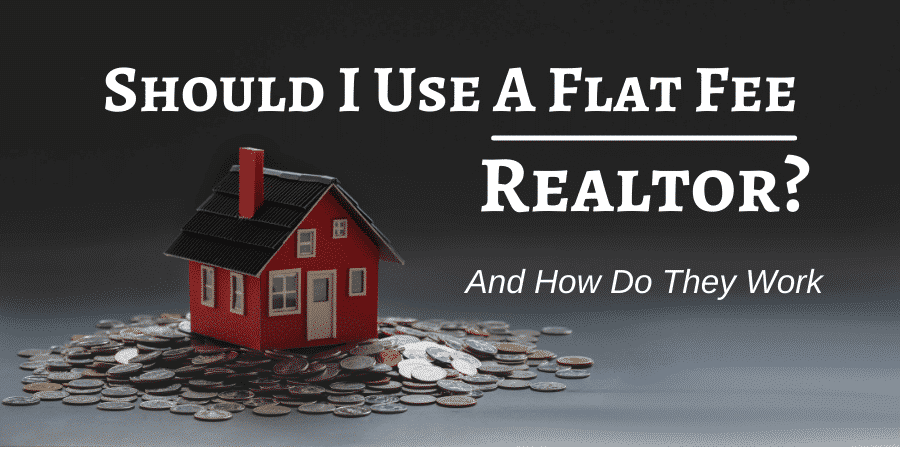Although selling a house is becoming more expensive, For Sale by Owner (or FSBOs), are still a popular way to sell your home. What’s the reason? After all, real estate agents have a lot of experience selling homes and FSBO homes are more difficult to sell and sell for a lower price.
Flat-fee real estate brokerages are a popular way for homeowners to save money on the sale of their homes and not lose out on vital services.
The term “flat fee brokerage” may be something you’ve heard before. Flat fee brokerage bridges the gap between homeowners who are in need of help and those paying exorbitant realty fees. These services are scalable and can be accessed by clients to help them save money as well as providing expert advice.
What is a Flat Fee Real Estate Agency
What is a flat-fee in real estate? This question can be answered by understanding how real estate commission works traditionally. The listing agent’s fees and the buyer agent’s fees are typically paid by the home seller. These fees average around 3% per agent or 6% of the property’s value. This is $36,000 for a home worth $600,000.

Instead of listing homes for a flat fee, real estate brokerages list them for a fixed value to cover all their costs. Only Pay For What You Need Real Estate, unlike other brokerages that may charge this upfront, only charges it after the property sells.
In exchange for lower fees, some “discount brokerages” offer less service. Only Pay For What You Need Real Estate is different. Only Pay For What You Need Real Estate provides the full-service experience at a discount brokerage price. It is true that America’s realty industry has stuck to outdated fee structures. Although the internet has made selling a house easier and more affordable, real estate fees have not changed in the past several decades.
Only Pay For What You Need Real Estate has set a flat fee for their listing service. This is to acknowledge that their business model can be scaled and for them to show the world how they can provide excellent service without compromising quality.
To Recap, Our Flat Fee Real Estate Service:
- Sets a flat fee for listing your home
- Knows that home listing services today are much easier to scale
- Recognize that most realtors overcharge for their services
- Provides all the same listing services people expect when selling their home
What are the benefits of flat-fee real estate services?
Enjoy savings up to 50% on expenses and commissions
The easiest and most popular option today is to hire an agent. It does however mean that you will have to spend a lot to get the job done. A full-rate agent may charge a commission of 6% on the sale, which can be very frustrating, especially if the house is highly valued.
Although FSBO (For sale by owner) can reduce the commission fee, it is not a great deal if multiple listing service (MLS) are excluded from the package. Without access to a decent MLS, the chance to get agents and buyers to find homes for sale can be slim to none. It’s possible to get prospects to purchase your property if it is already in their possession.
Flat fee realtors are a cost-friendly option that allows for efficient listing and processing. A flat fee realtor can save you the 6% commission split, and allow you to do more work yourself. Instead of paying a thousand dollars in expenses and commissions, you only have to pay a few hundred.
Agent’s terms are less important
Flat fee real estate offers home sellers another reason to choose it. This is because they are less likely to make any commitment. You must agree to several conditions when you use the traditional method. This type of brokerage can lead to you wasting time and money, as well as leaving you with unmet expectations. You need to avoid getting caught up in the trap of allowing unimaginable factors to sabotage your home-buying or selling experience.
Flat fee brokerages allow you to work on your own after you have paid the agent. You don’t have to deal with or waste time dealing with certain terms.
You have complete control over the sale of your home and all expenses
Traditional real estate is primarily a commission-based business model. Flat fee real estate offers the best option: you have complete control over the selling process, including property listings and bookings. You can also monitor the transactions.
How to Find the Best Flat Fee Real Estate Broker in Your Area

Did you know that 75% of people will choose the first agent they meet with when selling their home? It is crucial to choose the right agent to sell your home. There are many agents with little training or experience.
Before you agree to sell, make sure that you do the following:
- Review Flat-Fee Brokerage. It’s easier than ever to check the reputation of a brokerage and agent through the internet. Are their clients happy?
- Relevant experience. Is your agent familiar with the area? Are they familiar with selling homes in your area? Real estate is a fast-moving industry. It’s important to have someone who understands your local market.
- Listing specialization. Many agents are focused on buying houses, not selling them. You can have a technically skilled agent, but he or she rarely does the selling side. You will benefit from an agent who is a specialist in listing and has deep knowledge of the market, home listing protocol, negotiation tactics, and other aspects.
Interviewing multiple real estate agents is perfectly normal and most people do it. So there is no need to feel awkward about doing so or hiring the first real estate agent you talk to. It’s like a job interview. The job is to sell your house quickly and for a fair price.
Do I need a flat-fee real estate agent?
Flat fee brokerages are not to be avoided. Flat fee brokerages are actually helping to bring real estate transaction costs back into line. Brokerages should and can take advantage of the internet’s cost-saving features and pass the savings to their clients. Homeowners should always do their homework and verify the legitimacy of any agent or brokerage they are dealing with.


Usually a flat fee or discount brokerage doesn’t “take commission for themselves” it’s revenue that goes into the business. Much like when you buy any good or service, let’s say a Coca Cola – that $2 doesn’t go into the cashiers pocket, it goes to the store. Then the store pays employees, rent, operating expenses etc. The owner will eventually take their profit from what’s left over.